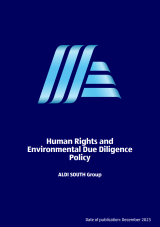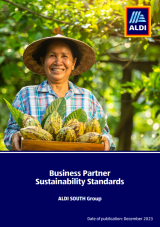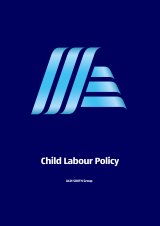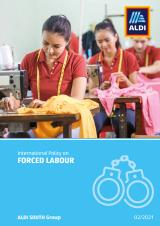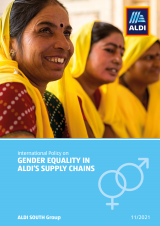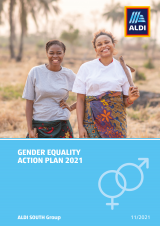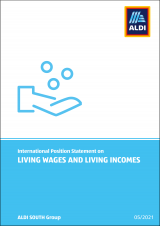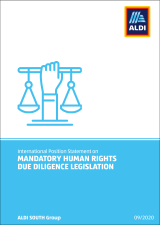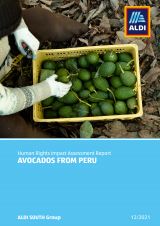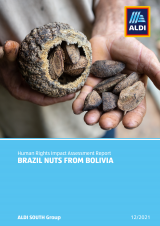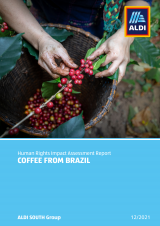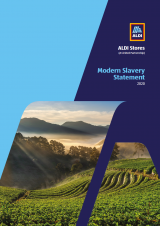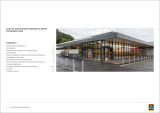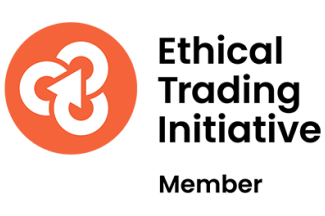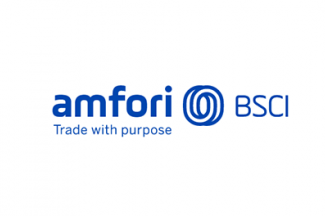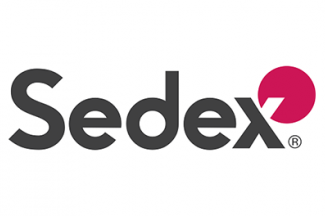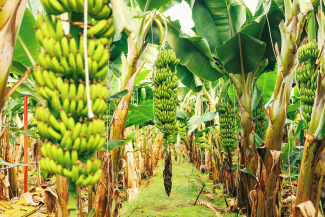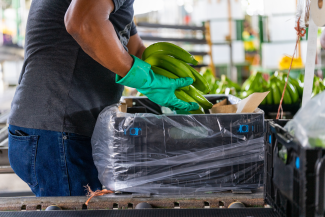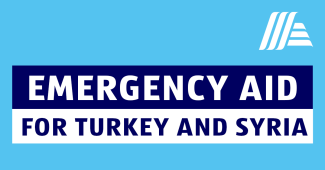
Human Rights
Our Vision 2030:
Using our buying power to respect human rights.
Our Approach
We are committed to respecting human rights and improving living and working conditions throughout our supply chains. Our commitment encompasses any adverse impact on human rights that we might cause, contribute to or are directly linked to.
In order to make a real difference, we have established a wide range of partnerships with organisations including suppliers, manufacturers, retailers, governments, and NGOs. Together we can improve the lives of workers and their families in many different ways; these include promoting better working and living conditions for workers and their families, paying fair wages, empowering women, clamping down on child labour and increasing the transparency in our supply chains.
Our Commitment
We are convinced that long-term success is only possible if human rights are acknowledged and respected. These rights should never be negotiable and apply equally to each one of us. Our commitment to respect all human rights encompasses any adverse impact on human rights that we might cause, contribute to or are directly linked to.
We expect our employees, our management and our business partners and other suppliers to respect human rights and to ensure that business activities comply with our human rights and environmental standards and policies.
We are aware that human rights violations are a global problem affecting every economy, industry and sector. Our approach is based upon understanding these complexities. We constantly assess our actual and potential impacts on human rights in order to prevent or mitigate the adverse impacts of our business or remediate where necessary. Based on our assessments we develop strategies and continually improve our processes and practices. We regularly review the alignment with the UNGPs and the effectiveness of our human rights approach.
In order to make a real difference, we have established a wide range of partnerships with organisations including suppliers, manufacturers, retailers, governments, and NGOs to increase our leverage and align our approaches on human rights due diligence. In addition to our partnerships, we acknowledge the important role of trade unions in protecting workers’ rights. We understand the potential negative impact if trade union activity is restricted or absent.
Our Frameworks
ALDI Business Partner Sustainability Standards
The ALDI Business Partner Sustainability Standards (formerly the ALDI Social Standards in Production) represent ALDI’s minimum requirements for its value chains. They reflect ALDI’s commitment to human rights and the environment as laid out in our Human Rights and Environmental Due Diligence Policy. They include the requirement for business partners to abide by such standards as the right to freedom of association and payment of minimum wages, and non-tolerance for discrimination, child labour and forced labour.
Child Labour
We are committed to contributing to the prevention, identification and remediation of child labour in all areas of our operations, including our supply chains. We do not tolerate children being exposed to any risks in productions sites used for our products.
Our 'Child Labour Policy' explains our understanding of child labour in accordance with international standards. The policy states ALDI’s expectations of our business partners to ensure that child labour does not occur at production sites used for our products. It describes the process of what ALDI, together with local expert organisations and our business partners, will do, if a child is found at a production site.
Forced Labour
Forced labour affects around 24.9 million people globally, which makes it a central concern for internationally operating businesses. We are aware of our responsibility to respect human rights, and have implemented requirements and policies to address forced labour and modern slavery in our supply chains. The ‘International Policy on Forced Labour’ expands on ALDI’s existing commitments to human rights and underlines ALDI’s stance that any forms of servitude or slavery, or forced, bonded, indentured, trafficked, or non-voluntary labour are unacceptable throughout ALDI’s supply chains. This concerns all relevant stakeholders including all suppliers, production facilities, service providers and contractors.
Gender Equality
The ALDI SOUTH Group believes that all workers should be treated fairly. We do not tolerate any form of discrimination and strive for gender equality within supply chains where it is being undermined or at risk. We acknowledge our responsibility to fulfil the UN Sustainable Development Goal (SDGs) number 5 to achieve gender equality and empower all women and girls across our own business and supply chains.
We recognise that female workers may be disproportionately affected by adverse human rights impacts for a number of complex reasons, some of which are country- or sector-specific. As per our recent human rights risk assessment, some of the problems include
- unequal treatment
- sexual harassment
- risk of gender-specific discrimination regarding wages and working conditions
- disproportionate share of unpaid or ‘invisible’ labour
- work at a lower hierarchy level and with low remuneration
- separation from children
- limited access to land, education and/or personal bank accounts
Identifying raw materials and products with a high risk of gender-based discrimination was a key part of our human rights risk assessment in food supply chains. Our human rights impact assessments will also seek to understand the impact of our operations on women.
Living Wages & Living Incomes
Working towards the payment of living incomes and wages is an important step for creating a sustainable supply chain. They contribute towards the fight against poverty and child labour and the realisation of other human rights. We recognise that legal minimum wages are sometimes not sufficient to allow supply chain workers and their families a decent standard of living. We also understand that collective bargaining plays a valuable role in allowing sufficient wages to be determined and wage gaps to be closed, and support the adoption of measures by governments to promote collective bargaining between workers and employers.
Our Support for International Standards & Legislation
We want to go one step further to successfully address systemic challenges throughout complex supply chains. Our longstanding commitment and cooperation with various interest groups have shown that the best way to improve working conditions within supply chains is through joint initiatives and partnerships. We support sustainable solutions that require all relevant political, economic, and social stakeholders to work together.
International Position Statement
In September 2020, we published our “International Position Statement on Mandatory Human Rights Due Diligence Legislation” in order to contribute in making human rights of all workers along supply chains a reality. ALDI calls for a frank and open conversation on mandatory human rights due diligence legislation and commits to support the development any future legislation.
EU Corporate Sustainability Due Diligence Directive
We are supportive of the upcoming "EU Corporate Sustainability Due Diligence Directive (CSDDD)" which will require companies to respect human rights and environmental standards. This legislation can potentially create a level-playing field, harmonise diverse national standards and ensure legal certainty.
For the CSDDD to reach its full potential, it is necessary for decision-makers to align with international standards, like the OECD Guidelines for Multinational Enterprises, use clear and practical terminologies and concepts, reduce the flexibility for member states when implementing the CSDD into national legislation, and increase the consistency with other EU legislation.
Whilst legislation is critical to support human rights, it is also important that production countries are incentivised to fulfil their duty to protect and to intensify social dialogue with workers and employers and implement stronger enforcement mechanisms in domestic law.
EU Directive on Unfair Trading Practices (UTP)
In line with the EU Directive on Unfair Trading Practices (UTP), the ALDI SOUTH Group is committed to fair trading practices in the relationships with our business partners. ALDI distances itself from unfair business practices, including late payment and subsequent changes to supply contracts. We are taking all necessary steps to ensure compliance with both the grey and blacklist of the UTP Directive.
Our Actions
We have developed our due diligence processes in alignment with the UNGPs and the OECD Guidelines for Multinational Enterprises. We understand our due diligence process is a process of continuous improvement.

Identification and prioritisation
Identification
The ALDI SOUTH Group strives to reduce any adverse impact on human rights that our business operations could have. We use activities such as risk assessments, audits, and supplier assessments to identify the actual and potential risks in our food and non-food supply chains.
Non-food supply chains
We have conducted a risk analysis in all our non-food supply chains to obtain an overview of potential human rights risks. Various sources, including the results of the ALDI Social Assessments (ASAs), third-party audits, assessments of our business partners, media screenings and the BSCI risk matrix, were used to identify the commodity groups that are most at risk of human rights violations. Additionally, we actively participate in a number of multi-stakeholder initiatives and other organisations, which allows us to gather further information. We repeat this analysis every two years to account for changes in economic, social and political conditions in production countries.
We understand that weak, or lack of existing legislation and a lack of compliance and minimum standards in some countries are not conducive to achieving just and favourable conditions of work and wages.
Food supply chains
We regularly conduct human rights risk assessments to examine the human rights risks within our food and agriculture supply chains. The aim of these assessments is to identify any adverse impacts our company may have on human rights, gain insights into our actual impacts and understand how we may be involved through our own activities or as a result of our business relationships.
Besides considering national ALDI countries input on their national priorities where human rights violations are mostly likely to occur, internal expertise and dialogue with expert stakeholders support our identification process. Based on our risk assessments we understand that the greatest risk of severe human rights impacts lies at the raw material stage.
Combined with our risk assessment findings we determine our final list of priorities. The raw materials and product groups which present a high risk of adverse impacts on the enjoyment of human rights and are considered most important to the ALDI SOUTH Group:
| Raw material level |
|
| Production facility level |
|
Indicators
Social risks
| Workers' rights: |
Negative impacts on workers' rights, including; exceeding the permissible working hours, low wages, health and safety risks, workplace bullying, harassment and abuse, discrimination or restricted freedom of association. |
| Gender-based discrimination: |
Assessment of unequal treatment between men and women and the risk of possible gender-specific discrimination, for example, through gender-based abuse or discrimination with regard to wages and working conditions. |
| Child labour: |
The risk that children undertake work that has an adverse impact on their health and development and the risk of work by children of mandatory school age. |
| Forced/bonded labour: |
Refers to modern forms of slavery and human trafficking, for example, by exerting pressure, withholding wages, or other forms of coercion. |
Environmental risks
| Water scarcity: | The risk that a country's demand for water exceeds its availability. This is accompanied by limited access to a water supply - for personal consumption and/or as a source of income. | |
| Climate vulnerability: | Assessment of the current and future risk that a certain country is exposed to extreme weather events. In addition, the willingness of the private and public sectors to invest in the necessary modifications was also assessed. | |
| Deforestation/land conversion: | The likelihood that products are cultivated on land which was recently a forest area with high conservation value, which may mean that forests were destroyed and land rights violated. | |
| Industrial pollution: |
Pollution caused by the manufacturing of products, which then leads to air and water contamination, (chemical) waste and noise pollution. |
|
Human rights impact assessments
We are developing specific measures to prevent or mitigate adverse human rights impacts. ALDI has committed to carry out detailed human rights impact assessments (HRIAs) that follow a stringent methodological approach, including extensive background research and engagement with rightsholders. Through these studies, we strive to identify, understand and assess the potential and actual adverse impacts of our business activities on workers and other affected rightsholders, such as community members, smallholder farmers and women. We have published the results of three HRIAs in selected high-priority raw materials: Avocado, Brazil nuts and Coffee.

Prioritisation
Based on our analysis we have identified the following risks as the most severe:

Integration and Action
In the future, we intend to increase our focus on preventing, mitigating and remedying negative impacts on human rights for those raw materials and products, which we classified as high-priority.
Mitigation and prevention of negative impacts
We will focus on the high-priority raw materials and products determined to be of highest risk of severe human rights impacts in the countries of origin, which are most relevant for the ALDI SOUTH Group. We are developing specific measures for preventing and mitigating these impacts. We have already implemented a variety of different measures to mitigate and prevent adverse impacts on human rights within our food and non-food supply chains, these include:
- Conducting own on-site visits for certain high-risk commodity groups through our ALDI Social Assessments (ASAs) and ALDI Producer Assessments (APAs)
- Integration of high-priority products into our Social Monitoring Programme (SMP)
- Training of employees and business partners
- Development of Corrective Action Plans (CAP) and if required, the exclusion of business partners or growers/producers as a last resort
- Our Corporate Responsibility Supplier Evaluation evaluates social and environmental compliance management systems of our business partners as well as their production facilities’ CR performance
- Consideration of auditing and certification schemes when making buying decisions and the definition of goals
- Adjustment of our buying processes to consider adverse impacts on human rights already during the tender process
- Development of goals and KPIs together with our buying department in order to monitor progress and to identify further actions
- Implementation of projects in origin countries
- Increase traceability and supply chain mapping
Remediation of negative impacts
We not only aim to ensure that the negative impact on affected rights-holders is prevented and mitigated, but that negative impacts that occur nevertheless are remediated. We seek to act upon findings and endeavour appropriate remedy by working within our business relationships to remedy adverse impacts which are directly linked to our operations and products. We acknowledge that state- based judicial and non-judicial mechanisms are a fundamental component to ensure access to remedy and should therefore not be obstructed.
Corrective action plan
Where adverse risks and impacts on human rights are identified despite our efforts to prevent and mitigate them, a corrective action plan is defined together with our business partners. This includes an action plan with individualised timelines for improvement and remediation of issues. The type of remedial action will be determined on a case-by-case basis and under consideration of the severity of the incident.
ALDI will closely monitor the implementation of the corrective action plan in order to support our business partners, to ensure the appropriate level of remediation and to allow us to provide feedback on their remediation efforts. The ALDI SOUTH Group may impose consequences, such as warning letters and temporary or permanent termination of business relationships, when business partners are unwilling to implement improvement and remediation measures.
Child labour remediation programme
We consider child labour to be a particularly severe human rights infringement. The ALDI SOUTH Group has set up a rapid response system in order to be able to react immediately and appropriately if child labour is found in our supply chains.
If child labour occurs at a production site producing for ALDI, we will seek a solution which is in the best interests of the child and their family, together with local expert organisations and our business partners. If a child is found to be involved in work in a production facility, the child is transferred to a remediation programme. Since 2017, we are partnering with “The Centre for Child Rights and Corporate Social Responsibility” for the implementation of the process.
Grievance mechanisms
The ALDI SOUTH Group recognises the need for workers to have access to grievance mechanisms compliant with the UN Guiding Principles of Business and Human Rights. For this reason, we have created grievance mechanism processes for our own employees and business partners. We acknowledge that effective grievance mechanisms are complex to establish and we aim to collaborate, where possible, with other stakeholders to create the most effective process.
We are a member of the International Accord of Fire and Safety in the Textile and Garment Industry. An essential part of the Accord is an accessible, rights-based and confidential grievance mechanism. In the case of grievances raised by workers through the Accord grievance mechanism, ALDI actively supports the investigation and remediation of findings.
Based on the experiences gained in the successful Accord grievance mechanisms, we are currently taking steps to build up grievance mechanisms in our high-priority supply chains. For that, we are partnering with civil society and multi-stakeholder organisations like amfori and the Issara Institute.
In our roadmap to our Vision 2030, we commit to ensuring that workers in at least three high-priority supply chains have access to an effective grievance mechanism and remedy as per the UN Guiding Principles definition until 2025.
Monitor and communication
We are committed to communicating and reporting transparently on our progress on addressing adverse human rights risks and impacts. We regularly monitor our due diligence process as well as the performance of our business partners in order to ensure alignment with the UNGPs.
Monitor
Visits & Assessments
Engagement with affected stakeholders is key for identifying potential human rights risks and adverse impacts. As part of our engagement, we regularly visit and assess production sites together with our business partners in our food and non-food supply chains. During our audits, we regularly engage with workers by conducting worker interviews.

Communication
Annual reports
Modern Slavery Statements
We report on our performance and our progress with regards to addressing modern slavery annually through our Modern Slavery Statements in the UK and Australia.
Human Rights Impact Assessments (HRIAs)
We are working on identifying the impact our business activities have on human rights. ALDI has committed to carry out detailed human rights impact assessments (HRIAs) that follow a stringent methodological approach, including extensive background research and engagement with rightsholders. Through these studies, we strive to identify, understand and assess the potential and actual adverse impacts of our business activities on workers and other affected rightsholders, such as community members, smallholder farmers and women. We have published the results of three HRIAs in selected high-priority raw materials: Avocado, Brazil nuts and Coffee.
Transparency of supply chains
We attach great importance to sustainable production conditions in the manufacturing of food and non-food products. Supply chain transparency is the foundation for all our sustainability measures. Without the knowledge where our products come from, we cannot ensure compliance with our requirements, analyse risks, monitor or implement projects. We work with our business partners to increase the transparency of our supply chains so that we have a better understanding of the origins of the products we sell and the raw materials we use in our products.
Stakeholder Engagement
Beyond audit approach
We consider third party social audits to be an important first step in gathering information about the human rights situation in our production sites and for initiating improvement. We are also aware that they may not always provide a true picture of working conditions and may fail to identify hidden issues such as forced labour, discrimination or harassment.
We commit to adopt an approach to ethical trade that goes beyond compliance and does not rely solely on social audits, complementing our audit approach with additional activity such as our own on-site visits, communication to and training for business partners, production facilities and producers, participation in multi-stakeholder initiatives, capacity building and projects on the ground.
We have established a wide range of partnerships with organisations including suppliers, manufacturers, retailers, governments, and NGOs. We believe that a collaborative approach is the best way to ensure human rights are respected. Therefore, we seek dialogue with rights holders and duty bearers, through our key partnerships and memberships.
Working with business partners
We work with our business partners to resolve human rights issues and to drive continuous improvement along our entire supply chains. We understand that, due to the complexity and sensitivity of human rights issues, they may take time to resolve and it is not our approach to cease business with business partners upon identification of such issues. We expect the same approach from our business partners with regard to their business partners. If risks or problems arise, the type of follow-up actions implemented will depend on the severity of the issue and the willingness of the business partner to enact or assist with prevention, mitigation or remediation. We commit to maintain a dialogue with our business partners, working together to share the responsibility to respect human rights in our supply chains.
We will continue to adjust our buying practices to address adverse impacts on human rights. These are already considered during our buying tender process and we actively intensify collaboration with business partners who have demonstrated a good sustainability performance.
Smallholder farmers
We work with many different types of business partners, from global businesses to small, family-run businesses. We understand that there are numerous specific challenges faced by smallholder farmers. Due to many factors beyond farmers’ control such as climate change, unpredictable weather conditions, international energy prices affecting farm inputs, and lack of access to market, it can be a challenge to produce a stable quantity of crops. Farmers often are not able to earn a living income and we recognise that we have an important role to play in facilitating this. As part of our approach, we are committed to support small-scale farmers to organise collectively. We are currently involved in several projects and initiatives, which help smallholder farmers and we plan to increase dialogue and support them to produce our high-priority raw materials.
Working with key partners
We believe the best way to protect the people and the environment is through joint initiatives and partnerships. For this reason, we engage in various multi-stakeholder initiatives and projects on the ground.
Our Objectives & Performance

By measuring our Corporate Responsibility objectives and performance on a regular basis, we are continuously validating the effectiveness of our actions, highlighting the areas where we are already making progress and identifying areas where further action is still required. As a global retailer, we want to use our global buying power and market influence to create lasting change for a better future. We focus our activities on high-priority raw materials and commodity groups.
News
Library
Sustainable Development Goals
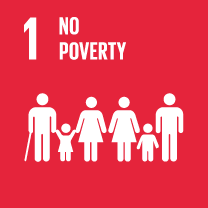
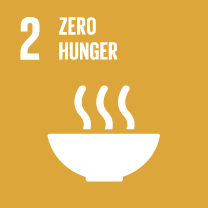
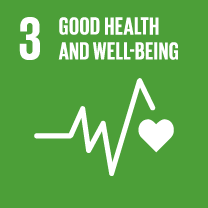
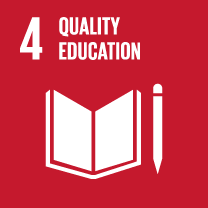
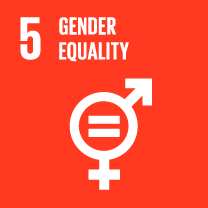
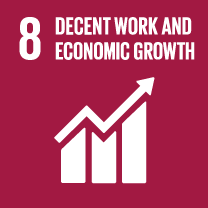
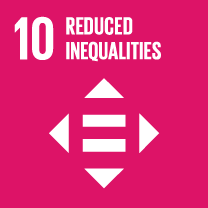
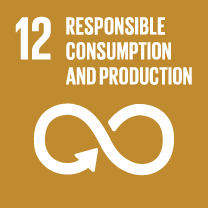
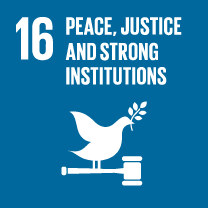
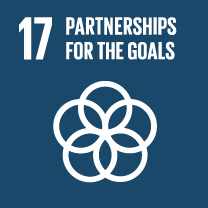
UNGC
Human Rights
Principle 1
Support and respect the protection of human rights
Principle 2
Not complicit in human rights abuses
Labour
Principle 3
Uphold freedom of association and recognition of right to collective bargaining
Principle 4
Elimination of forced and compulsory labour
Principle 5
Abolition of child labour
Principle 6
Elimination of discrimination in respect of employment and occupation
Anti-Corruption
Principle 10
Work against corruption in all its forms
